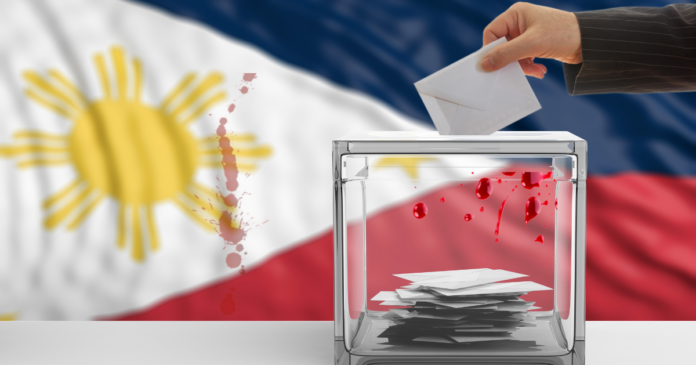Election hotspots are commonplace in Philippine elections, with politically motivated killings occurring in the same regions during every electoral cycle.
These areas, which are often dominated by political dynasties, experience heightened tensions as rival factions compete for power. Long-standing family feuds, control over local economies, and the presence of private armed groups fuel election-related violence.
The Commission on Elections (COMELEC) and the Philippine National Police (PNP) regularly identify these hotspots based on a history of political killings, armed confrontations, and security risks. In the 2022 elections, the COMELEC placed over 100 areas under its watchlist, with at least 63 under the highest level of concern due to violent incidents in past elections.
Bangsamoro remains a focal point for election-related violence, with armed group activity, clan wars, and dynastic rivalries driving political killings. The presence of private militias and the influence of warlord clans further escalate tensions.
Masbate, known for communist insurgents and politically aligned private armed groups, frequently experiences deadly confrontations involving candidates and supporters. Negros Oriental and Negros Occidental have recorded assassinations of local officials, with political rivalries and land disputes making elections particularly violent.
Abra has a deep history of election violence, where family-based political conflicts have led to numerous assassinations. Maguindanao del Sur and del Norte continue to witness politically motivated killings rooted in clan conflicts and power struggles over local governance.
A report by the Institute for Autonomy and Governance revealed that private armed groups, often affiliated with political clans, play a critical role in election violence. These groups intimidate opponents, suppress voter turnout, and manipulate election outcomes through coercion. Government efforts to dismantle these militias have seen limited success, as many remain under the protection of influential political figures.
To address election violence, COMELEC has increased security measures in high-risk areas, including the deployment of police and military forces, curfews, and gun bans. Despite these efforts, violence continues, with reports of ambushes, assassinations, and voter intimidation persisting in hotspot regions.
Election-related violence remains deeply embedded in Philippine politics. Without dismantling political dynasties, eliminating private armed groups, and strengthening law enforcement, election hotspots will continue to be arenas of bloodshed, where power struggles turn deadly.



